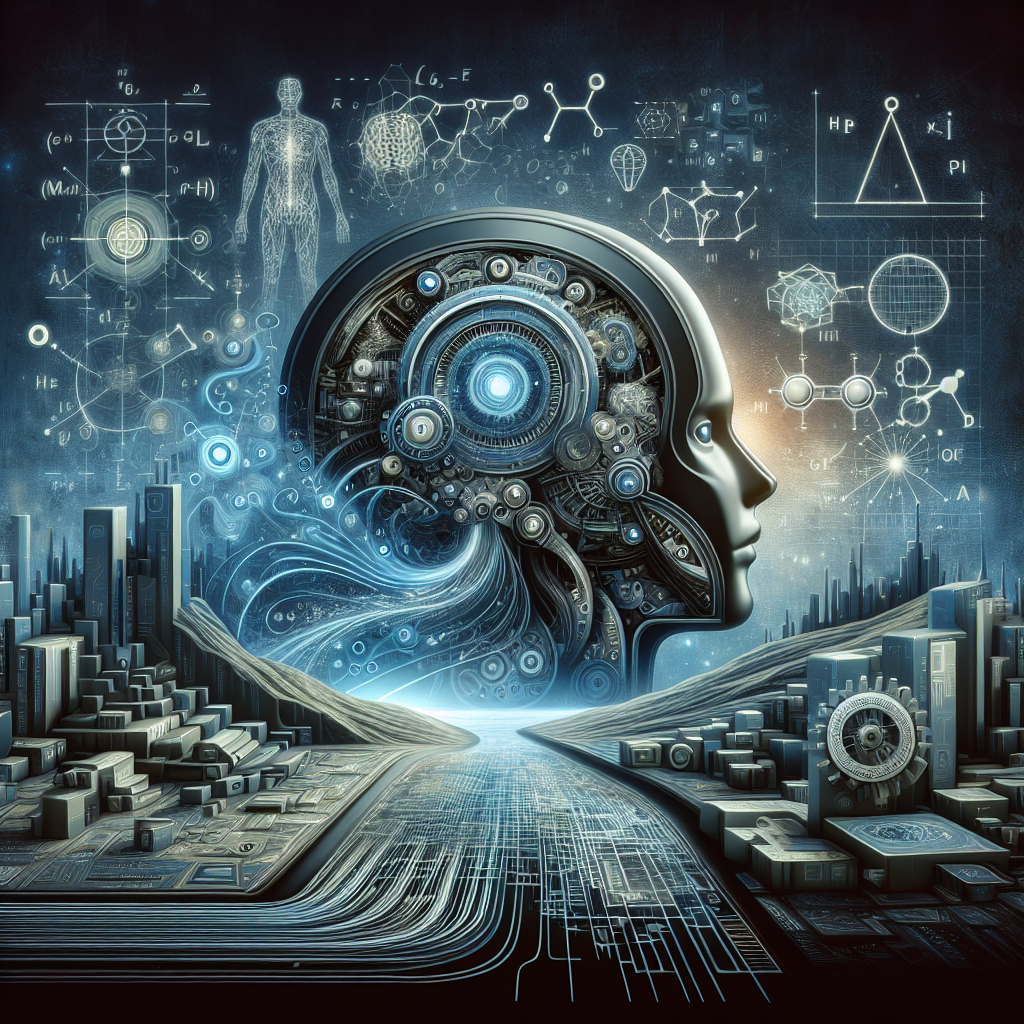The Quest for Superintelligent Machines: How AGI is Shaping the Future
Artificial General Intelligence (AGI) is a hot topic in the field of artificial intelligence (AI) and technology in general. The quest for superintelligent machines that can think, learn, and solve problems like humans is a fascinating and challenging endeavor that has the potential to shape the future of humanity in profound ways. In this article, we will explore what AGI is, why it is important, how it is being developed, and the potential implications of its creation.
What is AGI?
AGI refers to machines that possess general intelligence, meaning they can perform any intellectual task that a human can. This includes tasks such as understanding language, recognizing patterns, learning from experience, and making decisions based on complex information. AGI is often contrasted with narrow AI, which is designed for specific tasks and lacks the flexibility and adaptability of general intelligence.
AGI is considered the holy grail of AI research because it has the potential to revolutionize countless industries and aspects of human life. From healthcare and transportation to entertainment and education, the possibilities of AGI are virtually limitless. However, creating AGI is an incredibly complex and challenging task that requires advancements in a wide range of fields, including computer science, neuroscience, and cognitive psychology.
Why is AGI Important?
The development of AGI has the potential to bring about significant benefits for humanity. For example, AGI could revolutionize healthcare by enabling more accurate diagnoses and personalized treatment plans. It could also improve transportation systems by optimizing traffic flow and reducing accidents. In addition, AGI could enhance education by providing personalized learning experiences tailored to each student’s needs and abilities.
However, the creation of AGI also raises important ethical and societal questions. For example, how do we ensure that AGI is used for the benefit of all people and not just a select few? How do we prevent AGI from being used for malicious purposes or causing unintended harm? These are just a few of the many questions that researchers and policymakers are grappling with as they work to develop AGI.
How is AGI Being Developed?
AGI is being developed through a combination of research in machine learning, neural networks, and cognitive science. Researchers are using data-driven approaches to train AI systems to perform increasingly complex tasks, such as natural language processing, image recognition, and decision-making. In addition, advances in hardware and software are enabling researchers to build more powerful and efficient AI systems that can learn from large amounts of data and adapt to new challenges.
One of the key challenges in developing AGI is creating AI systems that can generalize their knowledge and skills across a wide range of tasks. For example, a self-driving car must be able to navigate different road conditions, weather patterns, and traffic situations, all while ensuring the safety of its passengers and other drivers. Achieving this level of generalization requires AI systems to be able to learn from experience, reason about complex information, and make decisions in real-time.
What are the Implications of AGI?
The creation of AGI has the potential to have profound implications for society, the economy, and the environment. For example, AGI could lead to significant job displacement as machines take over tasks that were previously done by humans. This could result in widespread unemployment and economic instability, as workers struggle to find new roles in an increasingly automated world.
In addition, AGI could exacerbate existing social inequalities by concentrating wealth and power in the hands of a few elite individuals or corporations. This could lead to increased social unrest and political instability, as marginalized groups protest against the unfair distribution of resources and opportunities.
Furthermore, AGI could have unintended consequences for the environment, as machines consume vast amounts of energy and resources to operate. This could exacerbate climate change and other environmental challenges, as AI systems continue to grow in complexity and scale.
FAQs
Q: Will AGI be able to surpass human intelligence?
A: It is possible that AGI could surpass human intelligence in some areas, such as processing speed and memory capacity. However, it is unlikely that AGI will ever possess the same level of emotional intelligence, creativity, and intuition that humans have.
Q: How will AGI affect jobs and the economy?
A: AGI has the potential to disrupt traditional industries and job markets, leading to widespread job displacement and economic instability. However, AGI could also create new opportunities for innovation and entrepreneurship, as workers adapt to new roles in an automated world.
Q: What are the ethical implications of AGI?
A: The development of AGI raises important ethical questions about how AI systems should be designed, deployed, and regulated. For example, how do we ensure that AGI is used for the benefit of all people and not just a select few? How do we prevent AGI from being used for malicious purposes or causing unintended harm?
Q: How close are we to achieving AGI?
A: While significant progress has been made in the field of AI, we are still far from achieving AGI. Researchers continue to work on developing AI systems that can learn from experience, reason about complex information, and make decisions in real-time. It is difficult to predict when AGI will be realized, but many experts believe that it is only a matter of time before machines surpass human intelligence in some areas.
In conclusion, the quest for superintelligent machines is a fascinating and challenging endeavor that has the potential to shape the future of humanity in profound ways. AGI has the potential to revolutionize countless industries and aspects of human life, but it also raises important ethical and societal questions that must be addressed. As researchers continue to work on developing AGI, it is crucial that they consider the implications of their work and strive to create AI systems that benefit all people and promote the common good.

